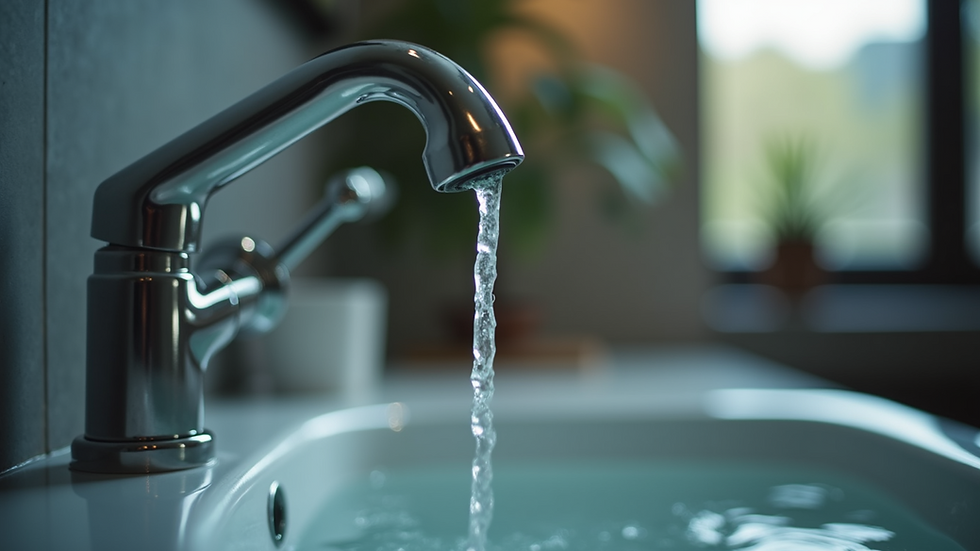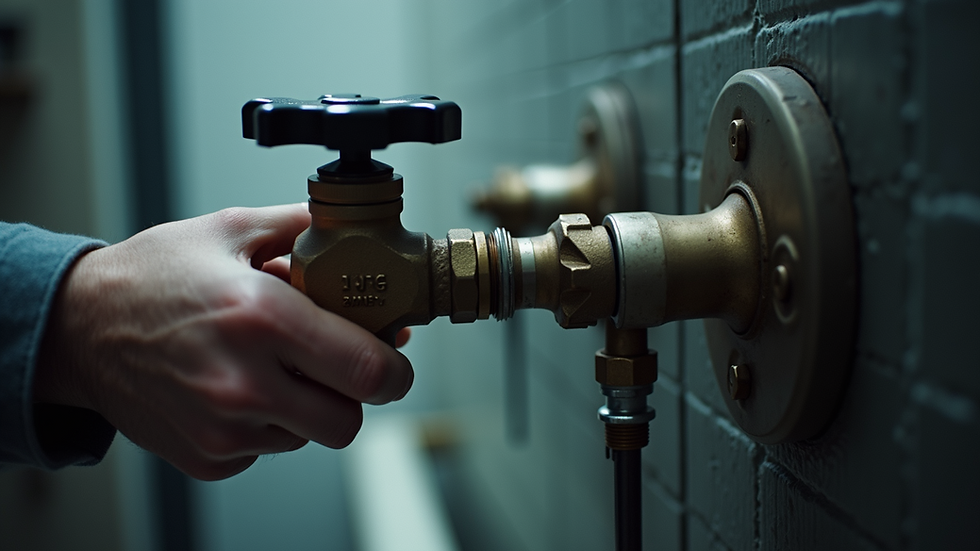Common Plumbing Issues Every Homeowner Should Know About
- Jamie Smith
- Sep 29, 2025
- 3 min read
Plumbing problems can disrupt your daily routine and cause significant damage if not addressed promptly. Understanding common plumbing issues helps you identify problems early and take action before they escalate. This guide covers typical plumbing challenges, practical tips for maintenance, and advice on when to call a professional.
Frequent Plumbing Problems and How Plumbing Services Can Help
Plumbing systems are complex and can develop various issues over time. Here are some of the most common problems homeowners face:
Leaking Faucets and Taps
A dripping faucet is more than just an annoyance - it wastes water and increases your bills. Leaks often result from worn-out washers, seals, or corrosion. Fixing a dripping tap usually involves replacing these small parts, which can be done by a skilled DIYer or a plumber.
Tips to prevent leaks:
Avoid overtightening taps.
Regularly check for signs of wear.
Replace washers promptly when leaks start.
Blocked Drains and Toilets
Clogged drains are a frequent headache. Hair, grease, soap scum, and foreign objects can cause blockages. Toilets may also get blocked by excessive toilet paper or unsuitable items.
How to manage blockages:
Use a plunger for minor clogs.
Avoid pouring grease down the sink.
Use drain strainers to catch debris.
For persistent blockages, professional drain cleaning is recommended.
Low Water Pressure
Low water pressure can be caused by pipe corrosion, leaks, or blockages in the plumbing system. It affects showers, taps, and appliances.
What you can do:
Check if the problem is isolated to one fixture.
Clean faucet aerators and showerheads.
Inspect for visible leaks.
Contact a plumber if the issue persists.

Burst Pipes and Water Leaks
Pipes can burst due to freezing temperatures, corrosion, or high water pressure. Burst pipes cause flooding and water damage, requiring immediate attention.
Preventive measures:
Insulate pipes in cold areas.
Monitor water pressure.
Schedule regular plumbing inspections.
Water Heater Problems
Water heaters may fail to produce hot water or develop leaks. Sediment buildup, faulty thermostats, or broken heating elements are common causes.
Maintenance tips:
Flush the water heater annually.
Check the thermostat settings.
Call a professional for repairs or replacement.
Understanding the Role of Plumbing Services in Maintaining Your Home
Professional plumbing services are essential for maintaining a safe and efficient plumbing system. They offer expertise, tools, and experience to handle complex issues that DIY methods cannot resolve.
What Plumbing Services Include
Emergency repairs: Burst pipes, leaks, and blockages.
Routine maintenance: Inspections, drain cleaning, and water heater servicing.
Installation: New fixtures, appliances, and pipework.
Upgrades: Modernising plumbing systems for efficiency.
Hiring qualified plumbers ensures compliance with safety standards and reduces the risk of future problems.
When to Call Plumbing Services
Persistent leaks or blockages.
Sudden drops in water pressure.
Water discoloration or foul smells.
No hot water or inconsistent heating.
Visible water damage or mould growth.
For reliable and professional assistance, consider plumbing services in hampshire, where experts provide timely and effective solutions.

How Much Should You Pay for a Plumber?
Understanding plumbing costs helps you budget and avoid surprises. Prices vary depending on the job complexity, location, and plumber’s experience.
Typical Pricing Models
Hourly rates: Usually between £40 and £80 per hour.
Fixed fees: For common jobs like fitting a new tap or unblocking a drain.
Call-out charges: A fee for visiting your property, often around £50 to £100.
Factors Affecting Cost
Urgency of the job (emergency call-outs cost more).
Parts and materials required.
Time of day or weekend work.
Accessibility and complexity of the plumbing system.
Tips to Manage Costs
Get multiple quotes before hiring.
Ask for a detailed estimate.
Schedule regular maintenance to prevent costly repairs.
Use reputable plumbing services to avoid poor workmanship.

DIY Plumbing Tips to Avoid Common Issues
While some plumbing tasks require professional skills, there are simple maintenance steps homeowners can take:
Regularly check for leaks: Inspect under sinks and around appliances.
Avoid chemical drain cleaners: They can damage pipes; use a plunger or drain snake instead.
Keep drains clear: Use strainers and avoid flushing inappropriate items.
Insulate pipes: Especially in colder months to prevent freezing.
Flush water heaters: Remove sediment buildup to improve efficiency.
These small actions can extend the life of your plumbing system and reduce emergency calls.
Signs You Need Immediate Plumbing Attention
Certain symptoms indicate urgent plumbing problems that should not be ignored:
Sudden water pooling or flooding.
Loud banging noises in pipes.
Persistent foul odours from drains.
Water stains or mould on walls and ceilings.
No water flow or complete blockage.
If you notice any of these signs, contact a professional plumber immediately to prevent further damage.
By understanding these common plumbing issues and knowing when to seek expert help, you can protect your home and enjoy a smoothly functioning plumbing system. Regular maintenance and timely repairs are key to avoiding costly problems and ensuring comfort in your living space.





Comments